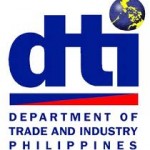The Department of Trade and Industry (DTI) have aligned the One Town One Product (OTOP) with the various industry clusters to develop innovative and globally competitive enterprises and make them contribute significantly to employment generation and inclusive growth to spur economic development in the country side.
Currently, there are now 32 industry clusters that are homegrown. These clusters are mostly in agribusiness, food, and handicrafts.
The OTOP program promotes the best product and service associated within a given locality, and utilizes the abundant local resources and labor to stimulate local economic activity.
The DTI plans to upscale the government OTOP program as a brand, and explore the possibilities of turning some of the OTOP entrepreneurs into franchisers.
“The OTOP as brand will sort of anchor on the 67 thousand small and micro entrepreneurs that we were able to develop in 1497 municipalities and cities of the country. As a project graduating into a brand, the OTOP will rely mainly on the entrepreneurs,” DTI Undersecretary Merly M. Cruz said.
“The small and micro entrepreneurs strive not only to come up with quality products but also expand their market year on year. With these kind entrepreneurs, we hope to propel our economy,” Cruz said.
“We are not talking about the various industries all together in one box. We are now talking of the different industries that are strong in themselves, able to grow, able to proceed its future, and able to move to a point where they want to be,” Cruz added.
The DTI is looking at the shared services facilities (SSF) or the provision of equipment or technology to the different priority clusters so that the entrepreneurs or SMEs under the said cluster will be able to achieve the right quality of products and the right cost to be competitive, and able to expand their capacity by aid of technology, according to Cruz.
Through these SSF, enterprises will leap several steps in the product development and execution stages by bringing the SSF for certain processes requiring equipment or machinery such as packaging, mechanical or kiln driers, and dye vats within their reach.
The DTI continues to support OTOP entrepreneurs and (SMEs) through creating business models to generate the market and sustain the same.
According to Cruz, the endeavor aims to come up with a real business model for an OTOP store that is sustainable and replicable.
